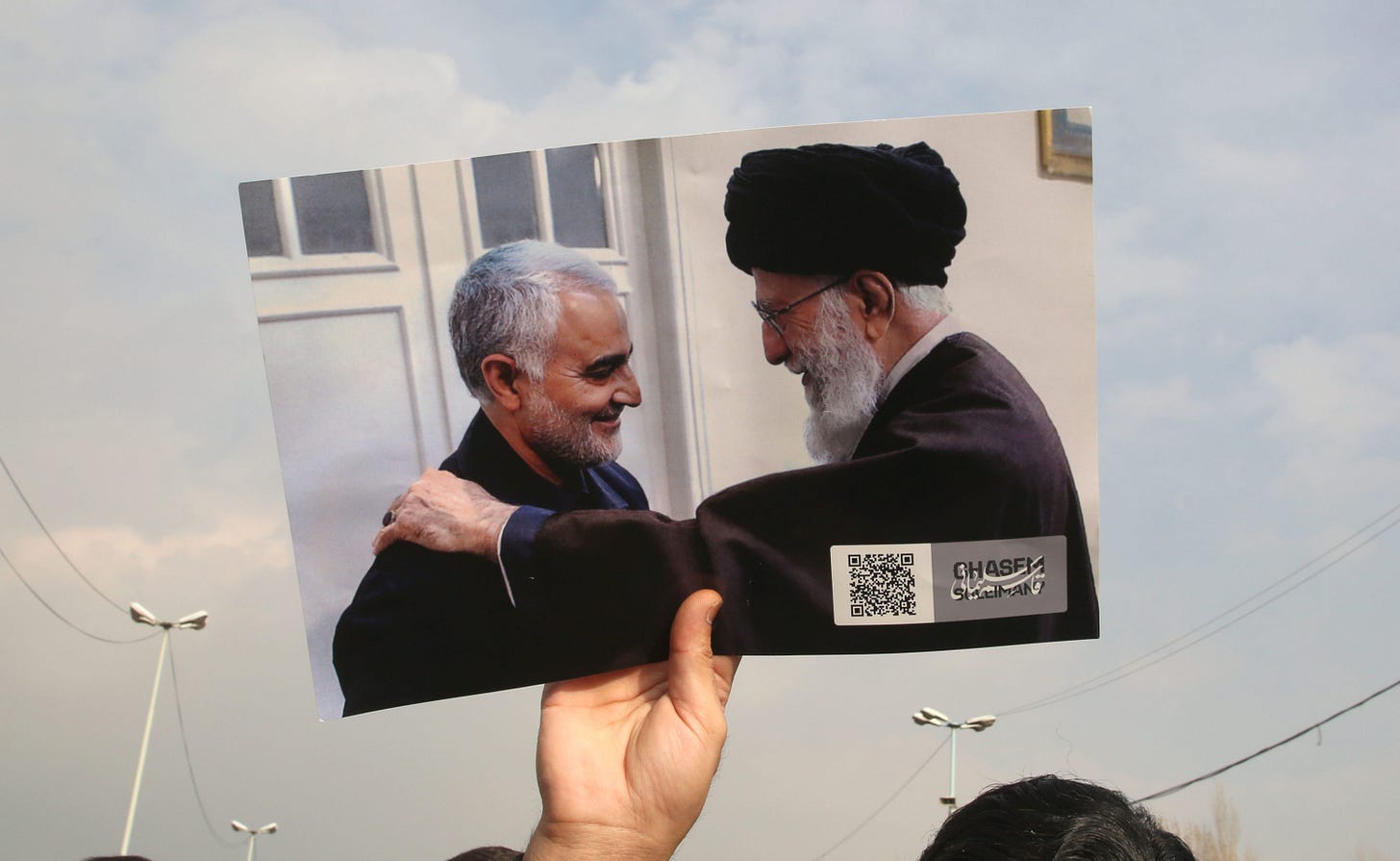Killing Soleimani Creates Opportunity for America and Its Allies

Early Friday morning, a U.S. drone strike killed Qassem Soleimani, the head of Iran’s Quds Force, as he rode in a convoy at Iraq’s Baghdad International Airport.
It couldn’t have happened to a better guy. But the question is: What comes next? Because unlike the killing of Abu Bakr al-Baghdadi, which was a capstone operation, the decision to kill Soleimani is likely to have significant downstream consequences.
The spectrum of possible scenarios is too wide, but the likely outcomes sit closer to the mean, which is continuing escalation from Iran, which would in turn require further escalation from the United States. The good news is that America holds all the good cards and has the opportunity to shape the region’s domestic and international politics.
But let’s start with Soleimani. Who was he? He wasn’t just another general. What made him stand out was not his military rank but that he was the Supreme Leader Ali Khamenei’s envoy and he operated with complete autonomy. Soleimani functioned as both a military commander and the foreign minister for Iran’s near-abroad. In terms of actual power, in many ways, he outranked the Iranian president.
And he was very good at wielding his power. In 2010, Vice President Joe Biden visited Iraq for a change of command ceremony but also to negotiate the extension of the State of Forces Agreement to maintain a military presence in Iraq after 2011, when the agreement was due to expire.
Within days, Soleimani summoned senior Iraqi politicians and lawmakers to tell them that they needed to pledge allegiance to Iran. He told them that the Americans would leave them one day, but that Iran would always be their neighbor. They abided. America left, and Iran stayed.
More recently, he had been orchestrating the suppressing of anti-Iran protestors in Iraq and preventing the formation of a new government there. He was also behind the attack on the U.S. embassy last week.
And while Iraq was Soleimani’s largest focus, he was also a powerbroker in Syria, Lebanon, and Yemen, building relationships with officials and empowering Iran’s proxies.
In Soleimani, Iran lost not just a capable military commander, but a high-caliber diplomat.
The most likely outcome is that Iran will now retaliate. Why wouldn’t it? For 40 years, minus the Tanker War episode in 1988, Iran has gotten away with murder. It has killed more than a thousand American servicemembers in Iraq, either directly or indirectly. It has, as of last week, twice attacked our embassies, which are America’s sovereign soil and count as homeland. It has held our diplomats as hostages, attacked our allies, and, more recently, attacked our aircraft in international airspace.
Iran has paid only financial prices for these actions, and they have learned very well how to live with sanctions, as they have been the most sanctioned country in the world for a decade now.
So the first question is what form will Iran’s retaliation take? And the second is, how will the Trump administration respond to it. For the past year, one could say that the U.S. and Iran have, simultaneously, been engaged in both a boiling frog experiment and a game of chicken. And it is unclear if one side will ultimately veer away, or if the slow escalation will boil over into a shooting war that neither side can back away from.
A full-fledged military conflict seems unlikely. For one thing, President Trump is an isolationist with no interest in foreign adventures. For another, a war with Iran would require Congressional authorization, which he would be unlikely to get.
As for Iran, it seems unlikely that their response to the Soleimani operation will be big enough to risk shifting American public opinion to embracing a full-fledged war. Because that would create an existential risk to the regime.
What does seem likely is that the current pattern of escalatory standoff will continue. That’s the most convenient way for both sides to keep face, at least until the 2020 elections. Trump doesn’t want a war in an election year, and the Iranians hold out some hope that a Democratic administration will want to make another deal with them.
No matter how the two parties play their cards, the long-term consequences are far-reaching. Iran has lost the connection between its proxies and its most important individual operator in the region. This means that it will not be able to, at least for a while, exert its influence as effectively in its neighborhood.
Which creates a moment of opportunity for the United States to exert our own influence over the domestic politics of Iraq and Lebanon to disempower Iran’s allies in those governments. Soleimani had been making it difficult to form new governments in those countries in the midst of the recent protests; his death provides an opportunity to help those countries form governments friendly to American interests.
Soleimani’s successor won’t be able to pick up exactly where Soleimani left off; he will face a learning curve. And by pressing our advantage in the region, the United States can also make it harder for this successor to become as powerful as Soleimani was.
There is a vacuum of leadership in the Middle East now. The United States should fill it. Otherwise, Soleimani’s death will be just another casualty.

